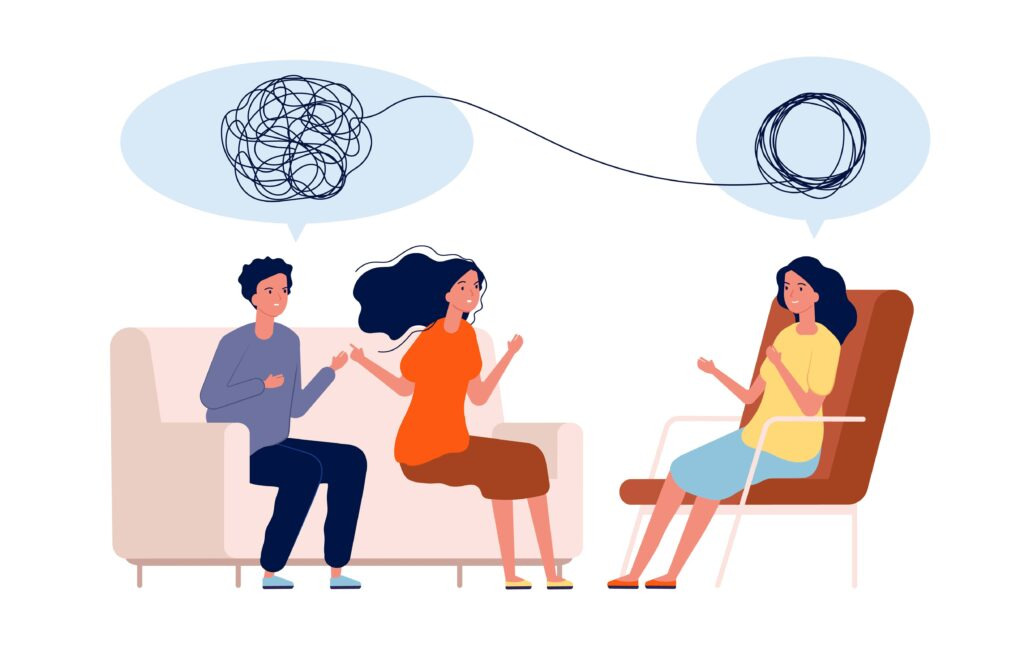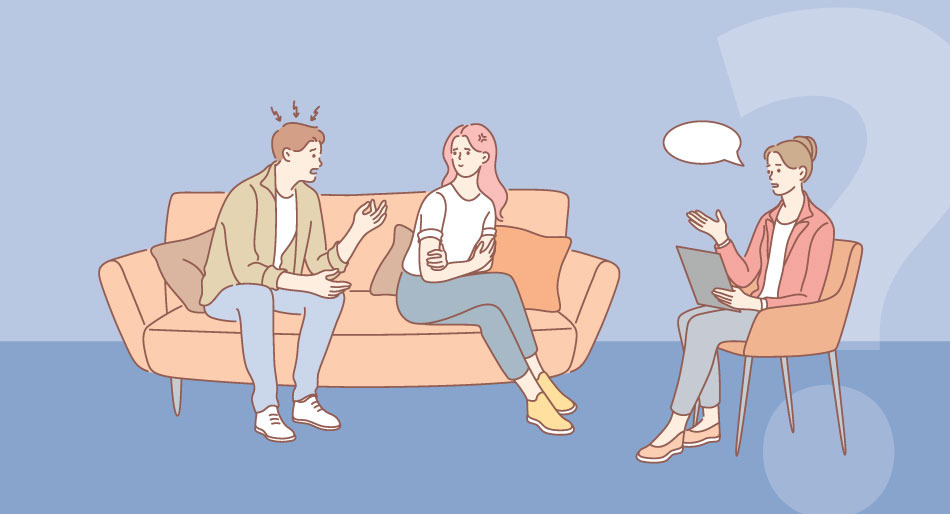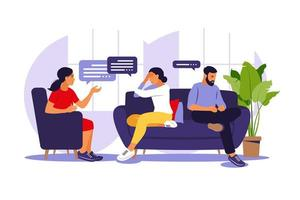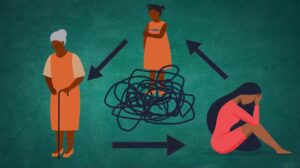Shutting the myths down: Who can Seek Couples Therapy?
Many people think that Couples therapy is exclusively for relationships that are obviously breaking apart, when conflicts are frequent, trust has been lost, and separation feels imminent. But after sitting down with hundreds of couples over the years, one thing has become clear: therapy isn’t a last resort.
It’s a technique to maintain your relationship before big splits occur. It’s a way to stay connected despite life’s inevitable changes. You don’t have to be damaged to require help; all you need is the desire to defend something you care about.
What Really Happens in Couples Therapy?
Many people have this common worry that therapy will turn into a judgmental session where both the individuals in a relationship only end up blaming each other instead of getting to the roots of the issues. But real couples therapy doesn’t work that way. It’s a space where both partners are heard, understood, and treated with equal care.
In therapy, you might:
- Relationship counselors will help you communicate in ways that feel safe, not explosive or defensive
- Understand the real emotions underneath small daily arguments
- Rebuild trust after hurt, whether it’s a big betrayal or a thousand small ones
- Navigate life changes together, like parenthood, job shifts, or aging parents
- Find your way back to emotional and physical closeness
Therapy isn’t about fixing you, it’s about helping you hear each other with your hearts, not just your words. When couples feel truly safe with one another, healing can begin.
Why Couples Seek Therapy Even When Everything Seems To Be Alright?
- Building a Stronger Foundation
You wouldn’t wait for a broken bone to start caring about your health. In the same way, you don’t have to wait for a crisis to take care of your relationship. Couples Therapy helps couples build stronger emotional muscles before problems harden into distance or resentment. Hence, Choosing therapy early is an act of love, not an admission of failure.
- Growing Together Over Time
Relationships keep evolving. One individual may find it easier to shine professionally over another while one may excel at cooking and other work. They can have their own expertise. What you had in your 20s as a couple can drastically change in your 40s in terms of your needs and wants. Relationship counselors will help you understand this collective evolution and nurture each other instead of growing further away. When you choose to grow side by side, love deepens in ways you couldn’t have imagined.
- Overcoming past unresolved troubles
Many couples make this mistake wherein they jump into what did not go right in their partner’s childhood or past relationships and how that is causing them trouble in their present relationship as a blame game. Relationship Counselors will shed light on how Healing the past is an important task however, this cannot be validated immediately as that will only elevate stress among the couple with one feeling superior over the other.
This is not a very wise idea. Instead, overcoming the past gradually by shedding light on how there exists a pattern is a much more sensible and rational approach to helping couples recognise their past and present connections without feeling flawed or accused. Therefore, in Couples therapy, Healing is never about blaming the past but about creating a better and kinder future ahead that benefits both the individuals in a relationship.
- Dealing with Life Transitions
This does not just fit for unpleasant events of life. This can refer to almost any event of life like the ones loaded with a lot of cheer like having given birth. Any moment that stirs heavy emotions, positive or negative also brings in strain, differing in intensity though.
Career stagnation, persistent quarrels in marriage or financial troubles, all of these scenarios test your resilience and patience to a great extent. When life pulls you in every direction, therapy helps you hold onto each other.
A True Story from Therapy Setting:
IFG and JPL (male and female) didn’t walk into therapy shouting at each other. They weren’t debating divorce. From the outside, everything looked fine. But inside their home, a quiet loneliness had taken hold.
Busy jobs, raising young kids, caring for aging parents, all of it had chipped away at their connection. Dinner became more about schedules than conversation. Hugs became rare. And little arguments about groceries or bedtime routines felt heavier than they should have.
In therapy, JPL shared the sadness she felt when IFG stopped calling to say he’d be late. IFG spoke about the silent pressure he felt to stay strong, to provide, even when he felt disconnected. They realized they weren’t fighting each other but they were fighting the distance that had slowly crept in.
Together, they learned to carve out small, sacred check-ins, asking simple but powerful questions like, “How’s your heart today?”
They practiced appreciating each other, not just for big accomplishments, but for the quiet, everyday ways they showed up.
What Couples Therapy Really Aims For?
Couples therapy is not focussed on forcing something to work but about helping bridge the gap by identifying the source of trouble in the couple.
Hence, the real goals of therapy are to:
- Create emotional safety and build back trust
- Help both partners understand each other’s needs, fears, and hopes
- Decide, together, how the relationship can evolve in a way that feels right for both people
Hence, Therapy honors love, but it also honors truth, even when the truth is hard to hear. Sometimes, the work deepens your commitment. Sometimes, it helps you part ways more kindly. Either way, it gives your relationship dignity and choice.
Couples Therapy in a Nutshell
Is couples therapy only for married couples?
Absolutely not. This is for anyone and everyone looking for any two individuals in a relationship that can be of any nature and does not have to be registered under legislation to seek therapy. You could be a couple living together, engaged and in your dating phase
What if my partner refuses therapy?
This is why a lot of couples withdraw the idea of therapy altogether as their partner is disinterested on this front. However, this can never end the idea of wanting to start. It is because, when one starts healing, the relationship dynamic shifts too quite organically.
How do we know if there lies a need for therapy in the first place?
This is neither an overnight decision nor a thought out one for years. You don’t need a huge mess up in your bond to seek therapy. Any stagnation, distance felt along the way or simple disagreements that arise when you are not on the same page as your partner are all deals that can be discussed and delved deeper in a therapy room with your therapist.
Will the therapist take sides?
This is a huge NO. No good or even decent trauma informed therapist will sound biased towards your situation with your partner. The objective is on working to create a safe space where you and your partner are able to discuss your troubles with each other without any filters with the therapist acting more or less like a facilitator and they are not judging you for whatever it is that you come up with.
What is the typical time frame for therapy?
It totally depends on what you wish to attain from this space. It is something that is understood along the way and never predetermined because the issues are vast and diverse and simply cannot be restricted with set deadlines, that infact reduces the efficiency and effectiveness of therapy. The imposition of deadlines can work with machines but not with humans discussing human triggers and troubles.
To sum up, Your relationship is too precious to leave on autopilot and it deserves care, attention, and the chance to thrive.
Why CoachForMind?
- We don’t merely address symptoms. We examine what’s really happening beneath the surface—past pain, trauma, or recurring patterns. You’ll collaborate with trained psychologists. Everyone here possesses the required qualifications and experience. You’ll engage with someone who listens and comprehends profoundly.
- Therapy is designed specifically for you.We don’t adhere to a rigid plan. We tailor the process based on your needs and current situation.
- We utilize various forms of therapy: Psychodynamic, IFS (Internal Family Systems), Somatic (body-oriented work), CBT and DBT and Narrative Therapy.
- It’s an environment to develop at your own rhythm.
You don’t need to feel prepared. We’ll navigate this journey together.
For more information, please visit our website or contact us directly at coachformind@gmail.com








